World
Top 10 international news stories of 2021
Out Olympians, conversion therapy bans, Polish crackdown
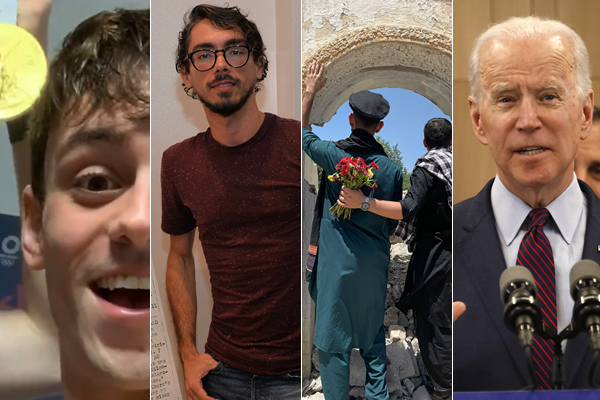
The Biden administration’s pledge to champion LGBTQ rights abroad was the dominant international story in 2021, but anti-LGBTQ crackdowns and efforts to expand rights also made headlines around the world over the past year. Here are the top 10 international stories of 2021.
#10: Botswana Court of Appeals decriminalizes same-sex sexual relations
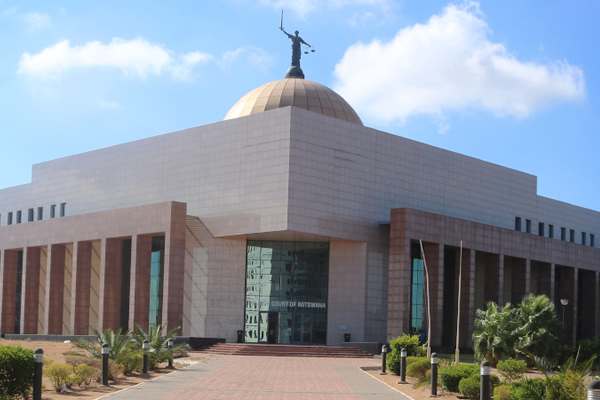
The Botswana Court of Appeals on Nov. 29 upheld a ruling that decriminalized consensual same-sex sexual relations in the country.
Lesbians, Gays and Bisexuals of Botswana (LEGABIBO) challenged the colonial-era criminalization law.
Botswana’s High Court in 2019 unanimously ruled the law was unconstitutional. The Batswana government appealed the decision.
“Today is a momentous day in history, a victorious win in ascertaining liberty, privacy and dignity of the LGBTIQ persons in Botswana and definitely, this judgement sets precedence for the world at large,” said LEGABIBO CEO Thato Moruti after the Court of Appeals ruling.
#9: LGBTQ athletes compete in Summer Olympics

A record number of openly LGBTQ athletes competed in the Summer Olympics in Tokyo.
Laurel Hubbard, a weightlifter from New Zealand, became the first out trans person to compete in any Olympics. Quinn, a non-binary trans person who is a member of the Canadian women’s soccer team, won an Olympic gold medal.
Tom Daley, a British Olympic diver who is married to Dustin Lance Black, also medaled during the games.
#8: LGBTQ activists, journalists arrested in Cuba
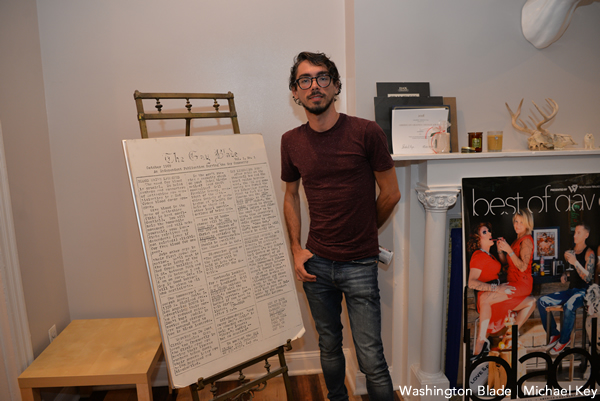
LGBTQ activists and journalists were among the hundreds of people who were arrested during anti-government protests in Cuba on July 11.
Maykel González Vivero, director of Tremenda Nota, the Washington Blade’s media partner in Cuba, was violently arrested near Havana’s Revolution Square during one of the protests.
Yoan de la Cruz, a gay man who live-streamed the first protest that took place in San Antonio de los Baños, remains in custody. He faces an 8-year prison sentence.
The protests took place against the backdrop of mounting food shortages, a worsening economic crisis, human rights abuses and criticism over the government’s response to the pandemic. Thousands of Cuban Americans on July 26 marched to the Cuban Embassy in D.C. in support of the protesters.
#7: Gay Games in Hong Kong remain in doubt
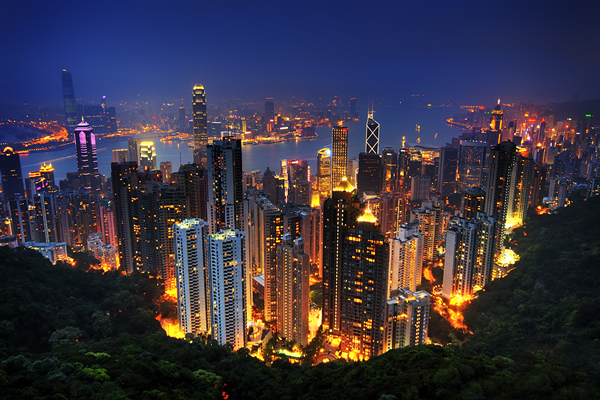
The 2023 Gay Games that are scheduled to take place in Hong Kong remain in doubt amid growing concerns over China’s human rights record.
Gay Games Hong Kong in September postponed the event until 2023 because of the pandemic.
Hong Kong’s National Security Law, which human rights activists say makes it easier for authorities to punish anyone in the former British colony who challenges the Chinese government, took effect in 2020. Upwards of 2 million Hong Kongers took part in pro-democracy protests the year before.
The Women’s Tennis Association has suspended tournaments in Hong Kong and throughout China in response to the disappearance of Peng Shuai, a Chinese tennis star, after she publicly accused former Vice Premier Zhang Gaoli of sexual assault. Diplomats from the U.S. and other countries will also boycott the 2022 Winter Olympics in Beijing.
“The Federation of Gay Games continues to monitor the situation in Hong Kong regarding COVID-19, the National Security Law and all other aspects that affect the safety and security of our event,” Sean Fitzgerald, co-president of the Federation of Gay Games, told the Blade in a statement after the Women’s Tennis Association announced it had suspended all of its tournaments in China. “We are committed to hosting Gay Games 11 in Hong Kong in November 2023.”
#6: Anti-LGBTQ crackdowns continue in Hungary, Poland
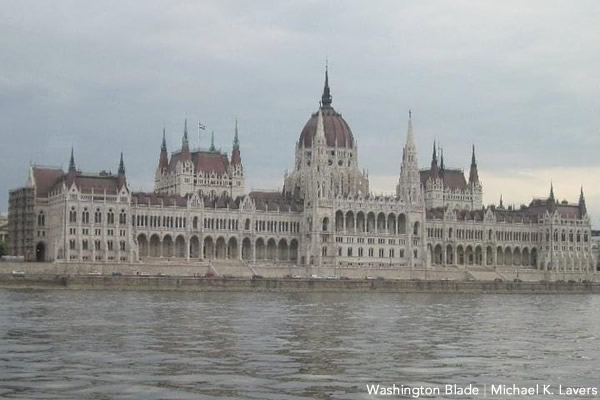
The governments of Hungary and Poland in 2021 continued their anti-LGBTQ crackdowns.
The European Commission in July announced legal action against Hungary after a law that bans the promotion of homosexuality and sex-reassignment surgery to minors took effect. Hungarian lawmakers in November approved a resolution that paves the way for a referendum on LGBTQ issues.
The European Commission in September threatened to withhold funds from five Polish provinces that have enacted so-called LGBTQ “free zones.” Polish lawmakers have also sought to ban Pride marches and other pro-LGBTQ events.
#5: LGBTQ candidates elected throughout the world
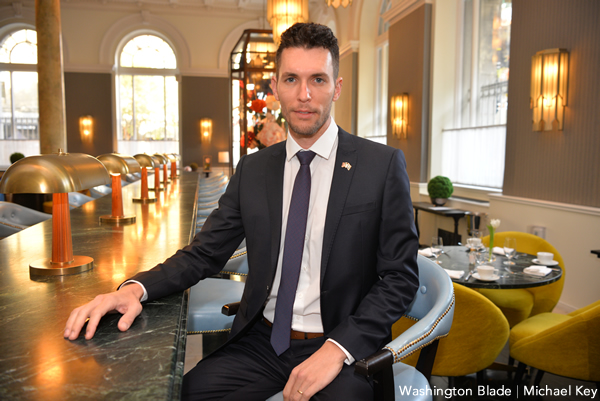
LGBTQ candidates won elections throughout the world in 2021.
Two transgender women — Tessa Ganserer and Nyke Slawik — won seats in the German Parliament in September. Emilia Schneider in November became the first openly trans person elected to the Chilean congress.
Victor Grajeda in November became the first openly gay man to win a seat in the Honduran congress.
Openly gay Deputy Israeli Foreign Minister Idan Roll is the youngest person in his country’s new government that formed in June after long-time Prime Minister Benjamin Netanyahu’s ouster. Israeli Health Minister Nitzan Horowitz is also openly gay.
#4: Efforts to ban conversion therapy gain traction
More countries moved to ban so-called conversion therapy in 2021.
A Canadian law that prohibits the widely discredited practice in the country will take effect in January.
French lawmakers on Dec. 15 approved a bill that would ban conversion therapy in their country.
Measures to prohibit conversion therapy are also before legislators in Finland and New Zealand. The British Parliament in 2022 is expected to debate a bill that would ban conversion therapy in England and Wales.
Brazil and Malta are two of the countries that already ban conversion therapy.
#3: VP Harris acknowledges anti-LGBTQ violence as cause of migration
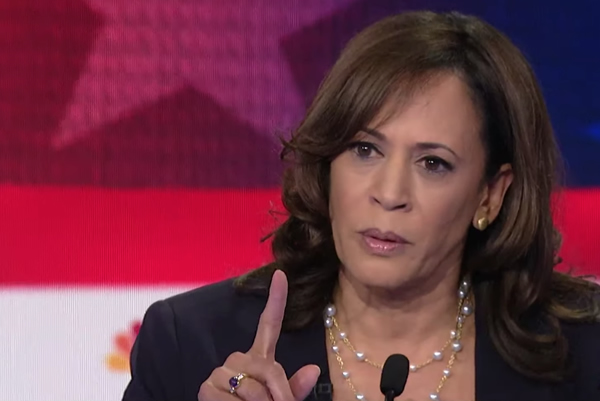
Vice President Kamala Harris throughout 2021 acknowledged that anti-LGBTQ violence is one of the “root causes” of migration from Central America.
Harris in June raised the issue during a meeting with Visibles Executive Director Daniel Villatoro, Ingrid Gamboa of the Association of Garifuna Women Living with HIV/AIDS and other Guatemalan civil society members that took place in Guatemala City. State Department spokesperson Ned Price, who is openly gay, a few weeks earlier told the Blade that protecting LGBTQ migrants and asylum seekers is one of the Biden administration’s global LGBTQ rights priorities.
Immigrant rights activists who remain critical of the Biden administration’s immigration policy note Title 42, a Centers for Disease Control and Prevention rule that closed the Southern border to most asylum seekers and migrants because of the coronavirus pandemic, remains in place. The so-called Remain in Mexico policy that forces asylum seekers to pursue their cases in Mexico has also been reinstated under a court order.
“To be a trans person is synonymous with teasing, harassment, violence and even death,” Venus, a transgender woman from La Ceiba, Honduras, told the Blade in July during an interview in the city.
#2: LGBTQ Afghans desperate to flee after Taliban regains control
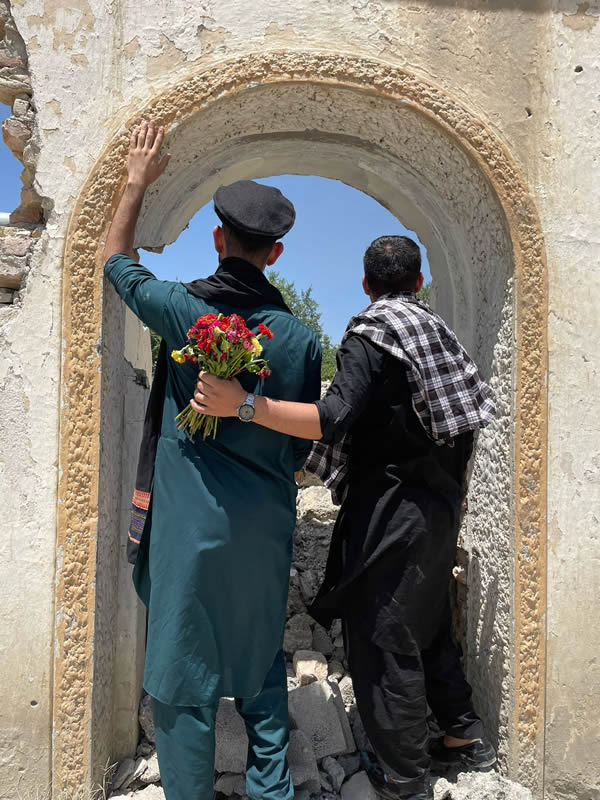
LGBTQ Afghans remain desperate to flee after the Taliban regained control of the country on Aug. 15.
Two groups of LGBTQ Afghans that Stonewall, Rainbow Railroad and Micro Rainbow evacuated with the help of the British government arrived in the U.K. in the fall. Some of the Afghan human rights activists who Taylor Hirschberg, a researcher at the Columbia Mailman School of Public Health who is also a Hearst Foundation scholar, has been able to help leave the country since the Taliban regained control of it are LGBTQ.
A Taliban judge in July said the group would once again execute gay people if it were to return to power in Afghanistan. Rainbow Railroad and Immigration Equality are among the groups that continue to urge the Biden administration to do more to help LGBTQ Afghans who remain inside the country.
#1: Biden commits U.S. to promoting LGBTQ rights abroad
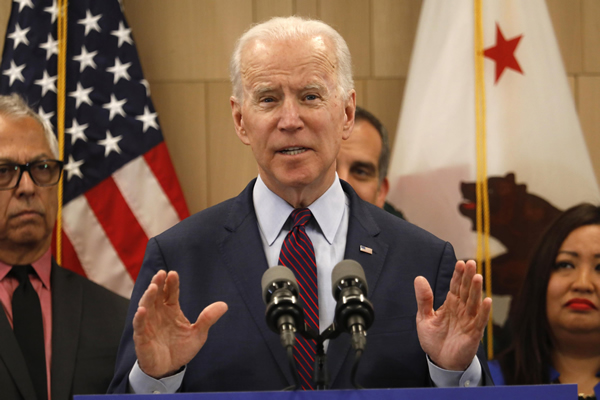
The Biden administration in February issued a memorandum that committed the U.S. to promoting LGBTQ rights abroad.
State Department spokesperson Ned Price, who is gay, in May told the Washington Blade the decriminalization of consensual same-sex sexual relations is one of the five global LGBTQ rights priorities for the Biden administration.
The White House in June named then-OutRight Action International Executive Director Jessica Stern as the next special U.S. envoy for the promotion of LGBTQ rights abroad. The State Department in October announced it would issue passports with an “X” gender marker.
India
Activists push for better counting of transgender Indians in 2026 Census
2011 count noted 488,000 trans people in country

India is preparing to conduct a nationwide Census in April, the first since 2011.
Interim projections based on the previous Census placed India ahead of China as the world’s most populous country. A Technical Group on Population Projections projection in July 2020, chaired by the Registrar General of India, estimated the country’s population in 2023 was 1.388 billion. Transgender Indians are now raising concerns about the data collectors and their sensitization.
Activists have raised concerns about whether data collectors are adequately sensitive to the community ahead of the Census. Government training material emphasizes household engagement, data privacy and sensitivity while asking personal questions, but publicly available flyers do not outline specific guidance or training related to recording trans identity during enumeration.
Concerns around the counting of trans people in India are not new.
The 2011 Census recorded around 488,000 trans people, a figure activists and researchers have described as a likely undercount due to stigma, misclassification, and a reluctance to self-identify. Subsequent surveys and field reports have pointed to inconsistencies in how gender identity is recorded and the absence of uniform sensitivity among Census data collectors. Rights groups and policy researchers have also warned that gaps in official data affect access to welfare schemes, legal recognition, and targeted public policy, making accurate counting central to future Census exercises.
A decade after the 2011 Census formally recorded trans people as a distinct category, multiple studies have continued to document entrenched socio-economic disparities. Research has pointed to lower literacy rates, limited workforce participation and barriers to healthcare access within the community.
A National Human Rights Commission-supported study cited in subsequent reporting found a significant proportion of trans respondents reported employment discrimination, underscoring the gap between formal recognition and lived economic inclusion.
Educational exclusion has remained a persistent concern within the trans community. Studies have documented higher dropout rates, lower literacy levels and barriers to continuing education, often linked to stigma, discrimination and limited institutional support. Policy researchers note that despite formal recognition in official data after 2011, targeted interventions addressing school retention and access for trans people have remained uneven.
Access to housing schemes has reflected similar gaps.
The Washington Blade in December reported only a small number of trans people have benefited from India’s flagship low-income housing program, despite its nationwide rollout and eligibility provisions. The findings underscored continuing barriers to inclusion in welfare delivery systems.
The Social Justice and Empowerment Ministry and the Office of the Registrar General and Census Commissioner did not respond to the Blade’s multiple requests for comment regarding sensitization measures for Census data collectors and the recording of trans identity in the upcoming Census.
Karnataka state in southern India last September conducted its first statewide baseline survey of gender minorities. The Department of Women and Child Development, in collaboration with the Karnataka State Women’s Development Corporation, launched the initiative to document the lives of trans people across 31 administrative districts.
When the results were released, the survey identified 10,365 trans people. The country’s 2011 Census, by comparison, recorded 20,266 trans people in Karnataka, nearly double the 2025 figure. The discrepancy raised questions about how the state’s recorded trans population appeared to decline over 14 years.
The discrepancy in Karnataka’s survey has intensified scrutiny over how gender minorities are counted. Reports questioned the methodology used in the 2025 exercise, which was conducted over 45 days beginning in mid-September. Instead of door-to-door enumeration, trans people were required to report to designated registration sites — primarily district-level public hospitals and sub-district government health facilities. The approach presented barriers for potential participants, particularly those in rural areas, those without reliable transportation, those wary of institutional settings due to prior discrimination, or those who did not know about the count, raising the possibility of exclusion.
Bihar state in eastern India in January 2023 conducted a caste-based survey that included trans respondents.
The final report identified 825 trans people in the state, compared with 40,827 recorded in the 2011 Census. Activists disputed the figure, calling it inaccurate and pointing to community estimates that suggested higher numbers, including in Patna, the state capital, raising concerns about significant undercounting.
The 2011 Census marked the first attempt to enumerate trans people at the national level, but researchers and activists have described the exercise as limited in scope.
It recorded 487,803 people under the “other” category, a classification used for respondents who did not identify as male or female. Analysts have argued that the figure likely underestimated the community’s size.
The Census questionnaire provided three sex categories — “male,” “female,” and “other” — a framework that critics said did not fully capture the diversity of gender identity and may have affected how some respondents chose to identify.
During the 2011 Census, enumeration practices varied across regions.
In states such as Tamil Nadu, local reporting indicated estimates were at times derived from existing administrative records, including state-issued trans identity cards, rather than solely through door-to-door identification. Such approaches risked excluding individuals who did not possess identity documentation or were not registered with welfare boards, raising concerns about gaps in coverage.
Official data from the Social Justice and Empowerment Ministry shows only a few hundred trans people as of early 2025 have been issued identity cards through the national portal, despite nearly 2,000 applications being submitted. Many are still pending or have been rejected.
Critics of the 2011 Census said many Census data collectors were not adequately trained or sensitized to engage with gender identity beyond traditional binary classifications. Similar, detailed guidelines specific to trans sensitization have not been publicly made available for the 2026 Census, according to an examination of training materials and official circulars.
Akkai Padmashali, a trans rights activist, told the Blade that Census data collectors in earlier exercises were often not sensitized and lacked awareness of intersex people and gender-diverse communities. She said trans people and other gender and sexual minorities continue to face social exclusion and require careful handling during door-to-door data collection. Padmashali called for targeted training of data counting officers and said the government should treat the issue as a priority, adding the trans population is likely to be higher than what was recorded in 2011 and efforts to make officials more sensitive to the community are necessary.
“We will definitely join our hands with this move the government of India has taken,” said Padmashali. “I think there should be proper guidance from the main in-charge people who are conducting this enumeration, and if no such proper information is given to these Census data collectors, it is difficult to gather any sort of information concerned.”
“This whole issue of self-identification — I think India, in its current situation, is not in such a way that it openly accepts people’s identities,” she added. “It will be challenging, it will be difficult, it will be a struggle to offer people the opportunity to express their identities as concerned. But to make sure those who are part of the sexual minority community are counted, I think we also take responsibility for educating people to be part of the enumeration.”
Padmashali said many people are not accustomed to using mobile devices and only a limited number are familiar with them. She said technology should not mislead or misguide the collection of information. Padmashali added she and other trans people plan to engage with Census data collectors and officials who organize the Census.
“Government should have local meetings,” said Padmashali. “Government should hold regional consultations on why the national enumeration is important, because we also know that from 2011 to 2026 is almost 15 years, and now we are here.”
“The government should hold local meetings, especially in their constituencies,” she added. “If the government meets with non-government organizations and civil society groups, this could become a more inclusive exercise across the country. India has a population of more than 1.4 billion, and I think this is the appropriate time to bring accurate statistics to help draft policies in the context of the larger community concerned.”
Books
New book profiles LGBTQ Ukrainians, documents war experiences
Tuesday marks four years since Russia attacked Ukraine

Journalist J. Lester Feder’s new book profiles LGBTQ Ukrainians and their experiences during Russia’s war against their country.
Feder for “The Queer Face of War: Portraits and Stories from Ukraine” interviewed and photographed LGBTQ Ukrainians in Kyiv, the country’s capital, and in other cities. They include Olena Hloba, the co-founder of Tergo, a support group for parents and friends of LGBTQ Ukrainians, who fled her home in the Kyiv suburb of Bucha shortly after Russia launched its war on Feb. 24, 2022.
Russian soldiers killed civilians as they withdrew from Bucha. Videos and photographs that emerged from the Kyiv suburb showed dead bodies with their hands tied behind their back and other signs of torture.

Olena Shevchenko, chair of Insight, a Ukrainian LGBTQ rights group, wrote the book’s forward.

The book also profiles Viktor Pylypenko, a gay man who the Ukrainian military assigned to the 72nd Mechanized Black Cossack Brigade after the war began. Feder writes Pylypenko’s unit “was deployed to some of the fiercest and most important battles of the war.”
“The brigade was pivotal to beating Russian forces back from Kyiv in their initial attempt to take the capital, helping them liberate territory near Kharkiv and defending the front lines in Donbas,” wrote Feder.
Pylypenko spent two years fighting “on Ukraine’s most dangerous battlefields, serving primarily as a medic.”
“At times he felt he was living in a horror movie, watching tank shells tear his fellow soldiers apart before his eyes,” wrote Feder. “He held many men as they took their final breaths. Of the roughly one hundred who entered the unit with him, only six remained when he was discharged in 2024. He didn’t leave by choice: he went home to take care of his father, who had suffered a stroke.”
Feder notes one of Pylypenko’s former commanders attacked him online when he came out. Pylypenko said another commander defended him.
Feder also profiled Diana and Oleksii Polukhin, two residents of Kherson, a port city in southern Ukraine that is near the mouth of the Dnieper River.
Ukrainian forces regained control of Kherson in November 2022, nine months after Russia occupied it.
Diana, a cigarette vender, and Polukhin told Feder that Russian forces demanded they disclose the names of other LGBTQ Ukrainians in Kherson. Russian forces also tortured Diana and Polukhin while in their custody.
Polukhim is the first LGBTQ victim of Russian persecution to report their case to Ukrainian prosecutors.

Feder, who is of Ukrainian descent, first visited Ukraine in 2013 when he wrote for BuzzFeed.
He was Outright International’s Senior Fellow for Emergency Research from 2021-2023. Feder last traveled to Ukraine in December 2024.
Feder spoke about his book at Politics and Prose at the Wharf in Southwest D.C. on Feb. 6. The Washington Blade spoke with Feder on Feb. 20.
Feder told the Blade he began to work on the book when he was at Outright International and working with humanitarian groups on how to better serve LGBTQ Ukrainians. Feder said military service requirements, a lack of access to hormone therapy and documents that accurately reflect a person’s gender identity and LGBTQ-friendly shelters are among the myriad challenges that LGBTQ Ukrainians have faced since the war began.
“All of these were components of a queer experience of war that was not well documented, and we had never seen in one place, especially with photos,” he told the Blade. “I felt really called to do that, not only because of what was happening in Ukraine, but also as a way to bring to the surface issues that we’d had seen in Iraq and Syria and Afghanistan.”

Feder also spoke with the Blade about the war’s geopolitical implications.
Russian President Vladimir Putin in 2013 signed a law that bans the “promotion of homosexuality” to minors.
The 2014 Winter Olympics took place in Sochi, a Russian resort city on the Black Sea. Russia annexed Crimea from Ukraine a few weeks after the games ended.
Russia’s anti-LGBTQ crackdown has continued over the last decade.
The Russian Supreme Court in 2023 ruled the “international LGBT movement” is an extremist organization and banned it. The Russian Justice Ministry last month designated ILGA World, a global LGBTQ and intersex rights group, as an “undesirable” organization.
Ukraine, meanwhile, has sought to align itself with Europe.
Ukrainian President Volodymyr Zelenskyy after a 2021 meeting with then-President Joe Biden at the White House said his country would continue to fight discrimination based on sexual orientation and gender identity. (Zelenskyy’s relationship with the U.S. has grown more tense since the Trump-Vance administration took office.) Zelenskyy in 2022 publicly backed civil partnerships for same-sex couples.
Then-Ukrainian Ambassador to the U.S. Oksana Markarova in 2023 applauded Kyiv Pride and other LGBTQ and intersex rights groups in her country when she spoke at a photo exhibit at Ukraine House in D.C. that highlighted LGBTQ and intersex soldiers. Then-Kyiv Pride Executive Director Lenny Emson, who Feder profiles in his book, was among those who attended the event.
“Thank you for everything you do in Kyiv, and thank you for everything that you do in order to fight the discrimination that still is somewhere in Ukraine,” said Markarova. “Not everything is perfect yet, but you know, I think we are moving in the right direction. And we together will not only fight the external enemy, but also will see equality.”
Feder in response to the Blade’s question about why he decided to write his book said he “didn’t feel” the “significance of Russia’s war against Ukraine” for LGBTQ people around the world “was fully understood.”
“This was an opportunity to tell that big story,” he said.
“The crackdown on LGBT rights inside Russia was essentially a laboratory for a strategy of attacking democratic values by attacking queer rights and it was one as Ukraine was getting closet to Europe back in 2013, 2014,” he added. “It was a strategy they were using as part of their foreign policy, and it was one they were using not only in Ukraine over the past decade, but around the world.”
Feder said Republicans are using “that same strategy to attack queer people, to attack democracy itself.”
“I felt like it was important that Americans understand that history,” he said.
Netherlands
Rob Jetten becomes first gay Dutch prime minister
38-year-old head of government sworn in on Monday

Rob Jetten on Monday became the Netherland’s first openly gay prime minister.
Jetten’s centrist D66 party won the country’s elections last October, narrowly defeating Geert Wilders’ far-right Party for Freedom.
King Willem-Alexander on Monday swore in Jetten, who is also the country’s youngest-ever prime minister. The Associated Press notes Jetten’s coalition government includes the center-right Christian Democrats and the center-right People’s Party for Freedom and Democracy.
“Proud to be able to do this together,” said Jetten in an X post before Willem-Alexander swore him in.
COC Nederland, a Dutch LGBTQ advocacy group, in a statement said Jetten “becoming prime minister shows that your sexual orientation doesn’t have to matter.”
“You can become a construction worker, a doctor, a lawyer, and even prime minister,” said COC Nederland.
The advocacy group noted Jetten has said his government will implement its “Rainbow Agreement” that include calls for strengthening nondiscrimination laws “to better protect transgender and intersex people,” appointing more “discrimination investigators … to address violence against LGBTQ+ people and other minorities,” and introducing measures “to promote acceptance in schools.”
“COC will hold the Cabinet to that promise,” said COC Nederland.
Jetten’s fiancé is Nicolás Keenen, an Argentine field hockey player who competed in the 2024 Summer Olympics in Paris.
Jetten is one of two openly gay heads of government: Andorran Prime Minister Xavier Espot Zamora came out in 2023. Gay Latvian President Edgars Rinkēvičs, who is the country’s head of state, took office in 2023.
Leo Varadkar, who was Ireland’s prime minister from 2017-2020 and from 2022-2024, and Xavier Bettel, who was Luxembourg’s prime minister from 2013-2023, are gay. Ana Brnabić, who was Serbia’s prime minister from 2017-2024, is a lesbian.
Former Icelandic Prime Minister Jóhanna Sigurðardóttir in 2009 became the world’s first openly lesbian head of government. Former Belgian Prime Minister Elio Di Rupo, former San Marino Captain Regent Paolo Rondelli, and former French Prime Minister Gabriel Attal are also openly gay.
Colombian presidential candidate Claudia López, who is the former mayor of Bogotá, the Colombian capital, would become her country’s first female and first lesbian president if she wins the country’s presidential election that is taking place later this year.
-

 India4 days ago
India4 days agoActivists push for better counting of transgender Indians in 2026 Census
-

 Advice4 days ago
Advice4 days agoDry January has isolated me from my friends
-

 District of Columbia4 days ago
District of Columbia4 days agoCapital Pride reveals 2026 theme
-

 National4 days ago
National4 days agoAfter layoffs at Advocate, parent company acquires ‘Them’ from Conde Nast



















